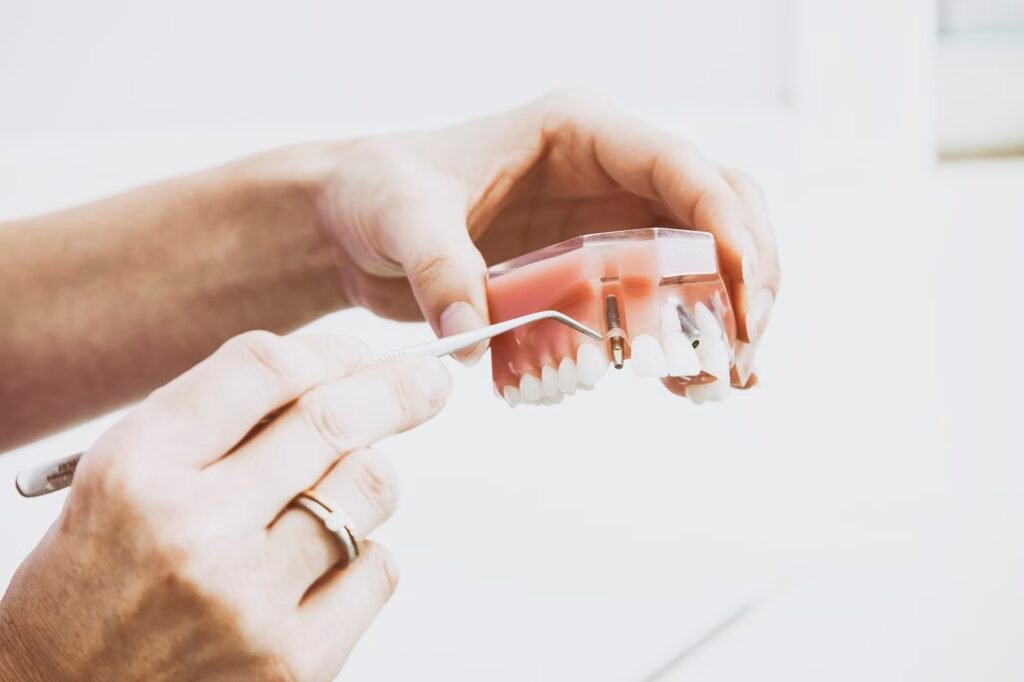Recovering from opioid use disorder (OUD) can be a time-consuming journey—one where you need to consider certain health aspects that you’ve neglected before. Hence, it is frustrating to discover that your treatment might hurt your teeth.
This is exactly what happened to several patients after using Suboxone. It’s a drug introduced in the early 2000s for treating opioid dependency in the United States. As the drug manufacturer substituted the initial tablet with a film version after a decade, patients reported severe dental side effects, including tooth decay.
The drug manufacturer, Indivior Solutions, failed to alert consumers and the medical community about the dental health hazards. As a result, the number of Suboxone lawsuits has gone up, with patients asking for legal compensation to cover their losses.
Patients with acute dental injuries and decay after using Suboxone should take steps to recover from them. This article will discuss how they can prevent dental injuries and treat them.
Dental Health Hazards Caused by Suboxone
In 2022, the FDA issued a warning about Suboxone and its side effects. In a study, researchers found that a group that used sublingual buprenorphine or naloxone reported several dental health issues compared to the other groups. The oral health hazards mostly include tooth loss and cavities.
The study revealed that the dental issues were 1.42 times higher compared to the group that used transdermal buprenorphine. It was also 1.67 times higher than the ones who used oral naltrexone. Tooth loss was higher in people who used sublingual buprenorphine or naloxone with 8.2 for every 1000 people.
Researchers concluded that the acidic nature of Suboxone can weaken and ultimately damage the tooth enamel. Some of the probable dental health hazards include:
- Tooth extractions and loss
- Tooth decay
- Infections
- Cavities
- Cracked teeth
- Root canal injuries
- Crown replacement
- Dental caries
If you have faced any of these side effects, you must file a Suboxone tooth decay lawsuit and seek the compensation you deserve. Using the settlement amount, you can pay for the required medical treatment needed to correct the dental injuries caused by this medicine. Since restorative dental treatments are costly, this amount will help cover your surgeries and medicines required to heal.
Preventing Tooth Decay While Using Suboxone
Some patients have to use Suboxone to treat OUD. Since research and anecdotal accounts point to potential dental health hazards, practicing proper dental hygiene is essential. Once the medicine gets dissolved, you need to rinse your mouth with water and swallow. You should wait for one hour before you brush your teeth.
Use a fluoride toothpaste to brush your teeth for two minutes. It’s best to angle the bristles toward the gumline and then use the brush to make small circles. You need to brush every side of a tooth, and other areas might hold on to the acidity, such as the tongue, cheeks, and the roof of the mouth. You must brush your teeth twice a day, at least, and floss after your meal.
Recovering From Dental Decay Caused by Suboxone: The Steps to Recovery
Similar to any other opioid used for a prolonged period, Suboxone too can cause tooth decay. If you’ve already experienced tooth loss or severe gum infections, you need to chalk out your path to recovery. The following steps can prove useful:
Check With a Healthcare Provider
It is necessary to let your doctor know that using Suboxone is not conducive to your dental health. They might first try to alter the dose. But, if you don’t feel comfortable with that, ask for another medication. Some patients have shifted to methadone from Suboxone to treat OUD, which worked for them. You, too, can try that and assess the outcome.
Check With a Dentist
Have you developed gum infections and cavities after using Suboxone? Additionally, if you have also faced tooth fractures and tooth loss, it is necessary to consult an expert dentist at the earliest. Ideally, cavities and infections are not very challenging to treat. But in cases of tooth loss and fracture, you will need restorative dental surgery.
Patients often need to undergo root canal treatment, crown replacements, dental implants, or bridges to treat their dental decay. Let your dentist decide the best option for you. Once you get the required treatment, make sure you go for regular check-ups, so that your dental condition doesn’t worsen.
Lifestyle Changes
Once your oral health is affected by Suboxone use, you need to incorporate a few lifestyle changes other than getting medically treated. Make sure that you consume a balanced diet that comprises fruits, vegetables, and whole grains. Limit acidic and sugary foods and beverages as much as you can. Nutrient-rich foods support good dental health and help you recover better.
Also, Suboxone users should quit smoking, as tobacco can lead to several oral health issues. It can further increase the chances of oral cancer, tooth decay, and gum ailments. Make sure that you stay hydrated because it helps to wash out the unwanted food particles from your mouth.
Seek Legal Recourse
It is necessary to file a lawsuit for the damages you’ve suffered after using Suboxone. TorHoerman Law states to consult a lawyer and know whether you are eligible for this. After that, a lawyer will use medical documents and other proof to build a solid case and ensure you are compensated. Use this amount to cover past and ongoing medical expenses.
In conclusion, it is indeed unfortunate to have compromised dental health while trying to treat OUD with Suboxone. The growing number of lawsuits has helped to create awareness about the drug’s side effects. However, many patients in the past suffered immensely after using this medicine and opted for the correct medical treatment. The points mentioned above can help you prevent and recover from dental injuries to a vast extent.

